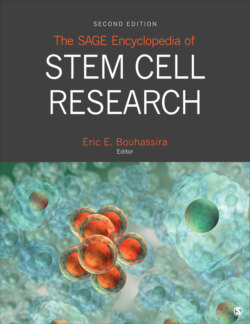Читать книгу The SAGE Encyclopedia of Stem Cell Research - Группа авторов - Страница 371
На сайте Литреса книга снята с продажи.
Conclusion
ОглавлениеStem cell therapies, including those with induced pluripotent stem cells (iPSC/iASC), show great promise both in the lab and clinically. While the research is still in its infancy, clinical trials involving stem cells are poised to skyrocket in the next generation of medicine and may represent a paradigm shift in therapeutic treatments. Such dramatic change always raises ethical questions in addition to the traditional concerns surrounding all clinical testing. Many of these concerns center around difficulties in assessing the potential for stem cell therapy’s efficacy. Determining risk versus benefit of a clinical trial is necessary if patients are to offer a truly informed consent to participation. Some ethicists argue that previous unwarranted excitement over stem cell research has “poisoned the well,” leaving both clinicians and participants unable to realistically evaluate the potential of SCT. Difficulty in obtaining participants as a result of past fraud may also bias caregivers unduly toward recommending experimental investigations. With the involvement of such vulnerable patient populations, the inability to realistically judge these factors may put them at undue risk without the real possibility of benefit.
The further commercialization of stem cell technologies compounds these concerns. Stem cells and their therapeutic use are at the forefront of biotechnological development, and both production procedures and the cells themselves are patentable. This is beneficial for driving innovation; however, because much of the research is backed by for-profit industries, it may create potential for misdirected accessibility and violations of human integrity. These can include financial hardship for participants, confusion about patient rights, and a misunderstanding over the final disposition of cells and personal genetic material.
Finally, when a clinical trial involves individuals with life-threatening or terminal illness, these worries become profound. People with terminal disease are especially vulnerable to treatments that offer even a glimmer of hope. This understandable human tendency demands that stronger scrutiny be applied when determining harm versus benefit in such studies. Ethicists continue to worry that the unique history of stem cell therapy (such as the Bezwoda fraud) skews this unreasonably against participants.
Michael Rightmire
Biocom Software
See Also: Adult Stem Cells: Overview; Clinical Trials, Ethics of; Clinical Trials Outside the United States; United States.
